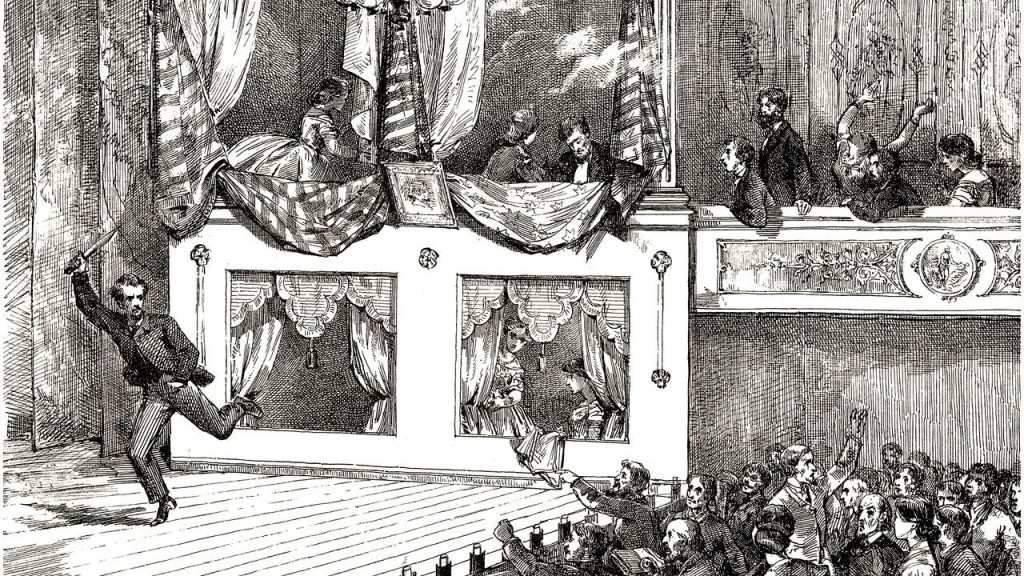On April 26, 1865, President Abraham Lincoln’s assassin, John Wilkes Booth, was killed by Union soldiers at a farm in Virginia, 12 days after fatally shooting Lincoln at Ford’s Theatre in Washington, D.C. Booth shot Lincoln in the back of the head during a play, leading to the president’s death the following morning. Despite attempts to save him, Lincoln succumbed to his wounds. Booth was a strong supporter of the Confederacy and had originally planned to kidnap Lincoln before changing his plan to assassinate him. Booth managed to escape the theater after shooting Lincoln, while his accomplice, Lewis Powell, tried to kill Secretary of State William Seward.
After escaping, Booth and Herold went on the run, hiding in the Zekiah Swamp for four days as Union soldiers searched for them. They eventually arrived at the home of Dr. Samuel Mudd, where Booth’s broken leg was treated. Mudd later discovered Booth’s involvement in Lincoln’s assassination but did not turn him in. Following a manhunt, Booth was found hiding in a tobacco barn in Virginia. Herold surrendered, but Booth refused and was shot by Union troops. He died on the porch of the farmhouse and was buried secretly. Four co-conspirators were hanged in connection with Lincoln’s assassination.
President Lincoln, who issued the Emancipation Proclamation in 1863, was laid to rest in Springfield, Illinois, on May 4, 1865. His presidency, which ended slavery and preserved the Union, is remembered for his dedication to equality and freedom for all. The legacy of Lincoln’s achievements, including the Gettysburg Address, continues to impact American history. His untimely death remains a subject of speculation about how it might have influenced the nation’s social trajectory. Lincoln’s death marked a significant moment in American history and the ongoing struggle for civil rights.
The assassination of President Abraham Lincoln by John Wilkes Booth on April 14, 1865, at Ford’s Theatre led to a nationwide manhunt for the perpetrator. After fleeing the scene and receiving medical treatment for his broken leg, Booth was found hiding in a tobacco barn in Virginia. Refusing to surrender, he was shot by Union troops and died on the farmhouse porch. The co-conspirators involved in the assassination were subsequently executed, bringing a sense of closure to the tragic events that had unfolded.
President Lincoln’s Emancipation Proclamation, delivered in 1863, forever changed the course of American history by declaring slaves within the Confederacy to be free. His presidency, characterized by the Civil War and the preservation of the Union, is commemorated through his impactful speeches, including the Gettysburg Address. Lincoln’s legacy as a champion for civil rights and equality continues to inspire generations of Americans. His tragic death signaled the end of an era and left an indelible mark on the nation’s conscience, sparking reflections on what might have been if he had lived.
The events of April 14, 1865, forever altered the trajectory of American history, with the assassination of President Abraham Lincoln serving as a tragic turning point. John Wilkes Booth’s act of violence led to a nationwide manhunt, culminating in his death at a Virginia farm 12 days later. The repercussions of Lincoln’s death reverberated throughout the country, shaping the ongoing struggle for civil rights and equality. While the co-conspirators faced justice for their involvement in the assassination, Lincoln’s enduring legacy continues to inspire a sense of hope and possibility for a more just and equitable future.


